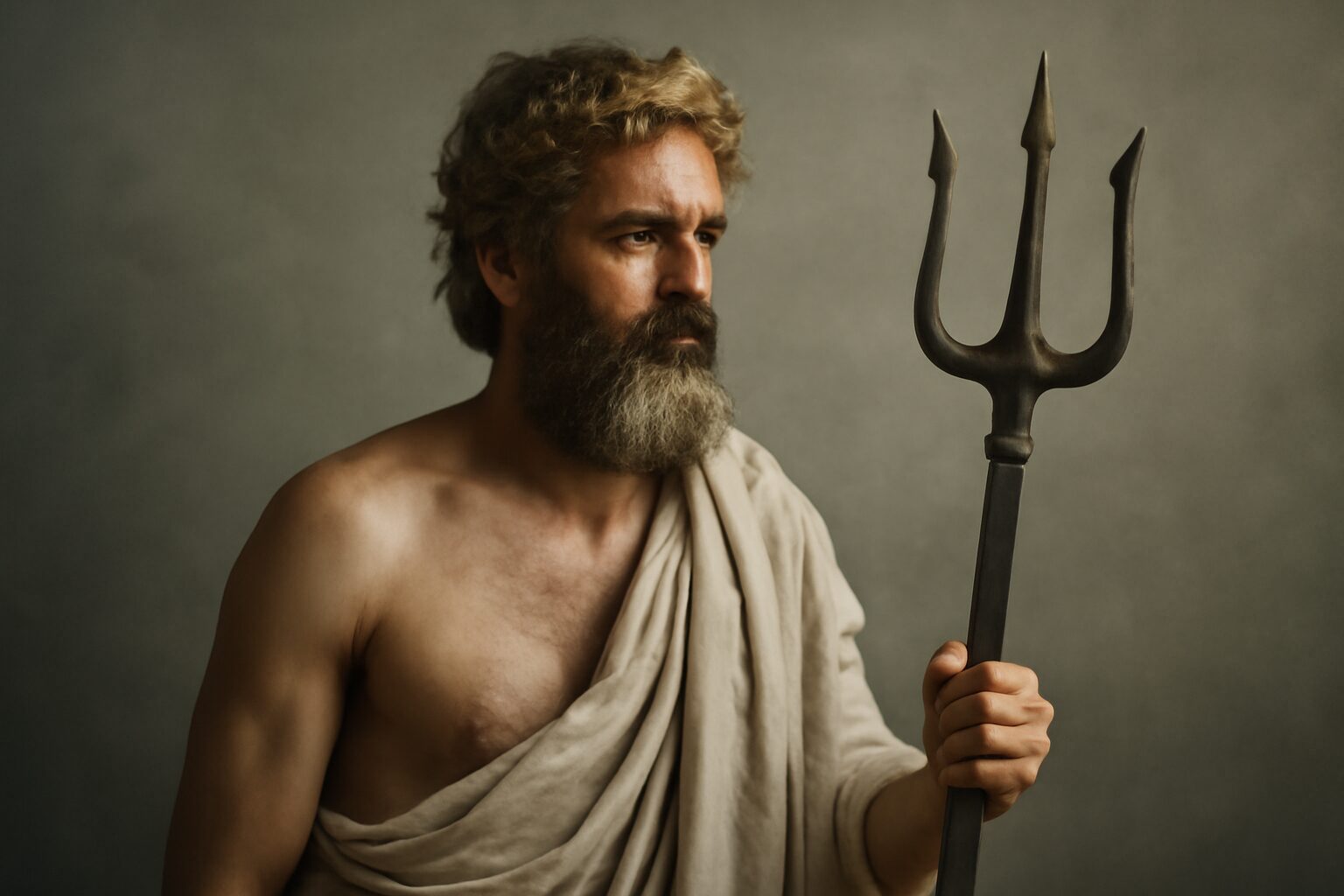Borysthenis: The Obscure Muse of Greek Mythology
In the rich tapestry of Greek mythology, Borysthenis stands as one of the lesser-known but fascinating figures among the Muses, the divine patrons of the arts and sciences. While her name may not be as widely recognized as her sisters like Calliope or Terpsichore, Borysthenis holds a unique place in the mythological tradition.
Origins and Role
Borysthenis was traditionally considered one of the three original Muses, alongside Melete (Practice) and Mneme (Memory), according to the poet Pausanias. Later traditions expanded the Muses to nine, but Borysthenis' early inclusion highlights her importance in archaic Greek worship. Her name, derived from the Borysthenes River (modern Dnieper), suggests a possible connection to Scythian or Thracian influences.
Powers and Associations
As a Muse, Borysthenis embodied the inspirational power of song and poetry. Unlike later specialized Muses, the original triad represented broader concepts—Borysthenis was associated with strength or force, possibly reflecting the vigorous nature of artistic inspiration. Some scholars link her to the concept of "boisterous" creativity, the raw energy behind artistic expression.
Mythological Significance
Borysthenis' relative obscurity in later Greek mythology reflects how the Muses' identities evolved. While the canonical nine Muses became standardized, the earlier traditions preserved in places like Mount Helicon maintained reverence for these primordial figures. Her connection to a major river (Borysthenes) also suggests possible water-related aspects to her worship, unusual among the typically mountain-dwelling Muses.
Cultural Legacy
Though rarely mentioned in surviving texts, Borysthenis represents an important transitional figure in Greek mythology—a bridge between the older, more abstract personifications of artistic power and the later, more specialized Muses. Her name occasionally appears in modern scholarly discussions about the pre-Olympian roots of Greek religious practice, making her a subject of interest for historians studying the development of the Greek pantheon.
Alternative Names for Borysthenis
God Name: Borysthenis (Greek)
The primary name of the god, associated with the Borysthenes River (modern Dnieper) in Greek mythology.
God Name: Danapris (Roman)
A Roman adaptation of the god's name, linked to the Latin name for the Borysthenes River (Danapris).
God Name: Borysthenes (Greek)
An alternative Greek name derived directly from the river, often used interchangeably with Borysthenis.
God Name: Targitaos (Scythian)
A possible Scythian equivalent or related deity, as some scholars associate Borysthenis with Scythian mythology, though the connection is debated.
Tales about Borysthenis
The Gift of the River: Borysthenis and Achelous
In the ancient lands of Scythia, the river nymph Borysthenis presided over the mighty river that bore her name. One summer, a terrible drought plagued the region, and the waters of her river began to shrink, threatening the people and wildlife that depended on her. Desperate, Borysthenis journeyed to the west to seek the aid of Achelous, the god of all fresh water and the eldest of the river deities.
A Divine Bargain
Achelous, impressed by her dedication to her people, agreed to help—but under one condition. He challenged Borysthenis to a contest of strength: if she could divert a portion of his waters to her river without his interference, he would grant her a permanent tributary. Using her wit, Borysthenis carved a clever network of underground channels, guiding Achelous's waters through the earth until they surged into her riverbed. Amused and impressed, Achelous not only honored his promise but also gifted her a conch shell that would forever ensure her river’s abundance. The river's renewed flow was celebrated by Euthenia, the spirit of prosperity, and Euporie, goddess of abundance, while Eupraxia, the personification of well-being, blessed the region with harmony.
The Dance of the Muses: Borysthenis and Terpsichore
During a festival on Mount Helicon, Borysthenis was invited to join the celebrations of the Muses. There, she encountered Terpsichore, the Muse of dance and choral song, whose movements were as fluid as the rivers themselves. Terpsichore, inspired by Borysthenis’s connection to flowing water, composed a new dance in her honor—one that mimicked the graceful, meandering path of a river.
A Symphony of Water and Motion
Together, they performed for the gods: Terpsichore’s steps wove patterns like currents, while Borysthenis summoned gentle streams that spiraled around them, reflecting the moonlight. Apollo himself praised their collaboration, declaring that from that day forward, the music of the rivers would forever echo Terpsichore’s dances. Borysthenis returned to her domain with a renewed spirit, and it is said that those who listen closely to her river can still hear the Muse’s melody in its flow. The performance was witnessed by Mneme, the Muse of memory, who preserved the event for eternity, and Euthymia, the spirit of joy, who ensured the celebration's happiness lingered among mortals.
Frequently Asked Questions
Who is Borysthenis in Greek mythology?
Borysthenis is a lesser-known figure in Greek mythology, often associated with the river god Borysthenes. She is sometimes considered a nymph or a minor deity connected to the river, which is located in modern-day Ukraine.
Why is Borysthenis important in Greek mythology?
While not a major deity, Borysthenis represents the connection between nature and divinity in Greek mythology. Her association with the river Borysthenes highlights how ancient Greeks revered natural landmarks as sacred or divine.
What can we learn from the story of Borysthenis?
Borysthenis teaches us about the ancient Greek practice of personifying natural elements like rivers. This reflects their worldview where every aspect of nature had a spiritual or divine presence.
Are there any myths or stories about Borysthenis?
There are no major surviving myths about Borysthenis. She appears mainly in references to the river Borysthenes (modern Dnieper River), showing how minor deities were often tied to specific locations in Greek tradition.
How does the concept of Borysthenis relate to today's world?
Borysthenis reminds us of humanity's historical tendency to find spiritual meaning in nature. This connects to modern environmental movements that emphasize respecting and protecting natural landscapes.













